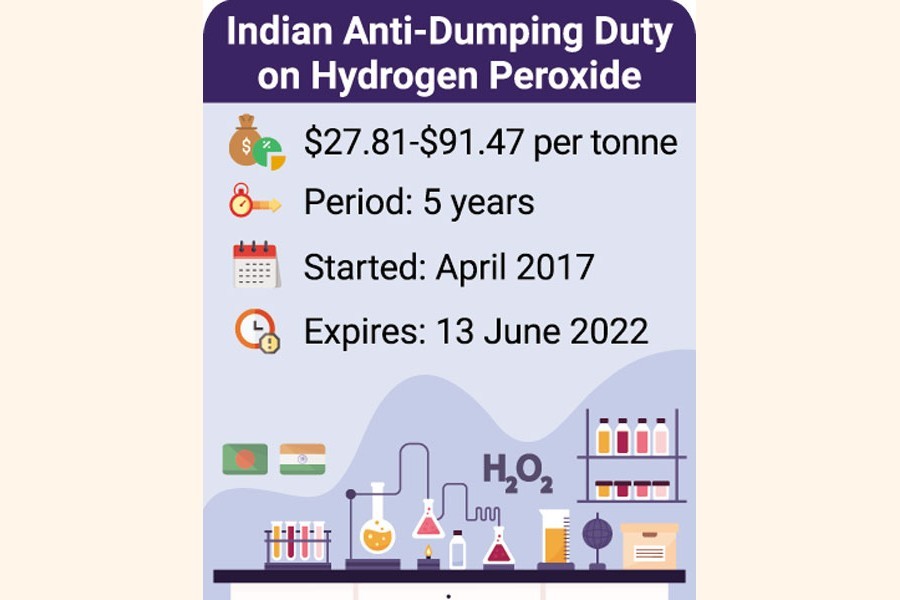Dhaka will request New Delhi not to further continue anti-dumping duty on hydrogen peroxide as it was not being exported to the Indian market at dumped prices.
Hydrogen peroxide is a textile chemical produced here.
Officials said Bangladesh has already pleaded with the Indian authorities not to further continue with such duty on its product at a verbal hearing.
Both Indo-Bangla representatives and stakeholders took part in the hearing that was hosted virtually recently.
India is now conducting a 'sunset' review of the import of hydrogen peroxide from Bangladesh.
The 'sunset' review, according to the anti-dumping agreement of the World Trade Organisation (WTO), is made to extend the validity of anti-dumping duty for five more years through an investigation.
A designated court of a country can initiate the sunset on its own accord or start the same following a request received from or on behalf of the domestic industry.
An anti-dumping duty is valid for five years from the date of its imposition unless it is revoked earlier.
It is a protectionist tariff that a domestic government imposes on foreign imports that it believes are priced below fair market value.
India slapped anti-dumping duty on Bangladesh's hydrogen peroxide between $27.81 and $91.47 per tonne in April 2017 for a period of five years, which will expire on 13 June 2022.
When asked, WTO Cell director general Md Hafizur Rahman said, "We've placed our arguments at the verbal hearing. We will submit our arguments formally to the Indian authorities soon."
"We've requested the Indian authorities not to further continue imposing anti-dumping duty on Bangladeshi hydrogen peroxide," he told the FE on Tuesday.
Earlier in January 2017, India slapped similar duty on Bangladesh's jute yarn, hessian and bags ranging between $19 and $352 per tonne.
In 2018, the neighbouring nation also put anti-dumping duty at $2.69 per kilo on the shipment of fishing net.
The duty is aimed at ensuring fair trading practices and creating a level-playing field between domestic producers and foreign exporters/producers.
Currently, India has taken an initiative to launch an anti-dumping investigation into the export of clear float glass (CFG) by Bangladeshi producers.
Bangladesh has already requested India not to impose such duty on its CFG.
A verbal hearing has already been held on this issue, but the result is not received yet, an official said.


